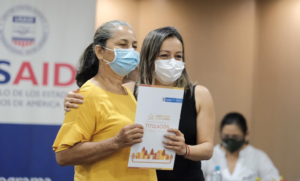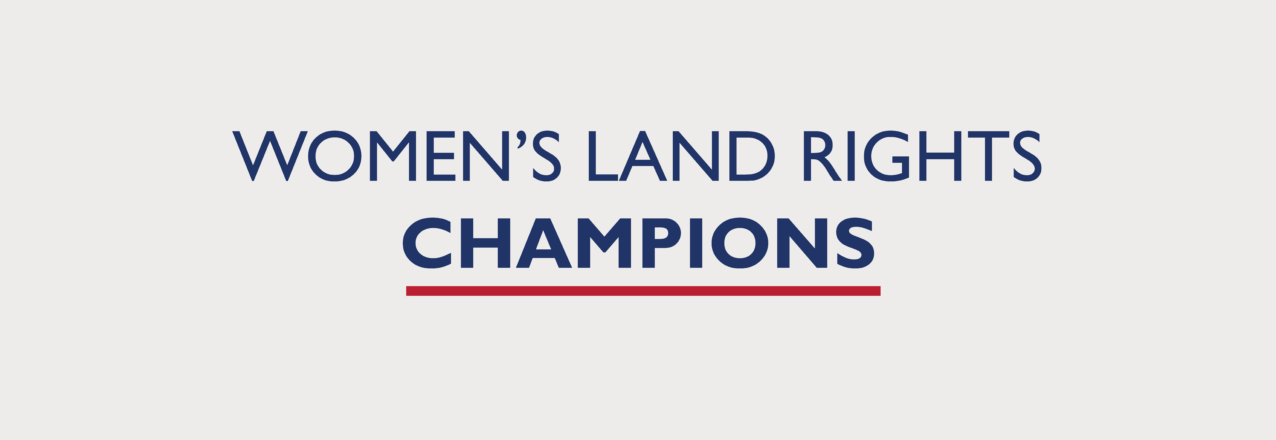This series features Women’s Land Rights Champions within USAID to learn more about their work. This month’s Champion is Marcela Chaves of USAID/Colombia.
Tell us about yourself.

My name is Marcela Chaves and I have worked for USAID/Colombia since 2009. I am a business administrator and have an MBA. I was born in Colombia, moved and grew up in New York, and returned to Colombia many years ago. My professional career started in the private sector. I have been working on land issues with USAID for over ten years now and have fallen in love with land work. I have been able to understand how supporting land rights can make a difference in very complex and challenging environments, and how it can have a positive and transformational impact on rural families in Colombia.
Why are women’s land rights and resource governance important to your work? And to other USAID development work?
Women’s land rights are a central piece of our work in the Rural and Economic Development Office at USAID/Colombia and a cross-cutting issue for our Mission. As part of the support provided to the Colombian state to advance towards more cost efficient land titling in rural areas, and in order to have a better chance to reach all those families that have been waiting for years and sometimes decades to access these titles, securing women’s equal access to these property rights is vital. Leaving women behind is never an option. Besides, research shows that helping women to access their rights to land results in significant benefits to the health and education conditions of their households and increases their ability to invest in agricultural production long-term. Additionally, the only way USAID’s land governance work can be sustainable once assistance ends is to make sure equal rights to land are promoted and that local governments have the necessary capacity to enact sound land governance policies on their own.
What are some of the biggest challenges in helping women secure land rights and what are some things being done to overcome them?
Based on what we have seen so far, there are several challenges to helping women secure land rights, including: 1) institutional barriers that exclude women from obtaining a land title 2) the need to sensitize public officials in the importance of including women in land titling either as heads of households or jointly as part of a couple, and 3) cultural barriers that prevent women from knowing what their rights are and how to exercise them, among others. To address these challenges, USAID has provided support through two different land programs. The current program is Land for Prosperity. This program includes coming to agreement with the government to use forms that collect women’s information for subsequent title processing, providing training and tools for government officials to better understand the importance of doing so, and working with communities to sensitize all relevant actors about the importance of women’s land rights through tools such as radio soap operas, songs, and community plays that convey these important messages.
What are some of USAID’s successes in the area of women’s land rights?
One of the main successes has been issuing land titles with the Colombian government in which at least 50% of the beneficiaries are women. A second important success has been demonstrating how women can become more active and participate more in USAID-supported activities to do massive land titling; the majority of the social leaders supporting parcel sweeps in targeted municipalities are women. Finally, being able to agree on titling methods that include women’s rights and create pathways to process their cases has been an important step forward.
Anything else you want to share?
Every time we have the chance to go to the field and see the excitement of all the women who access a land title, it fills my heart with joy and makes all the effort worthwhile.


